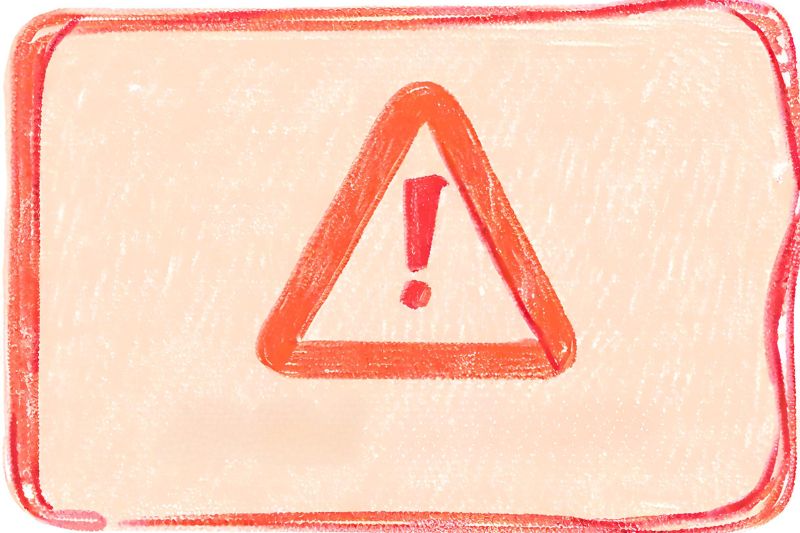Feeling Worried? Challenge Anxious Thoughts with These Simple Questions
Stuck in a spiral of anxious thoughts? Use these 3 simple questions to challenge negative thinking and adopt a healthier mindset.

When anxiety takes hold, it’s incredibly hard to shake the worrying thoughts that plague your mind. Even if you manage to resolve one potential problem, it can feel like 3 more immediately spring up in its place. These thought spirals are a common symptom of anxiety.
In this article, we’re going to walk you through a 3-step process to challenge anxious thoughts and stop them in their tracks. Let’s go!
The underlying rule
Before we dive into the questions that will challenge your anxious thoughts, we need to cover the main rule that you should always remember: thoughts are not facts. The trick anxiety plays on your brain is that it convinces you that whatever you’re thinking is likely to come true, and if you ignore it things will only get worse.
However, just because you think something does not mean that it is true or that it will happen. In the midst of anxiety, this is really hard to believe, and telling yourself this alone is not enough to calm your nervous system. To truly challenge anxious thinking, you must combine this notion with some questions that interrogate (and ultimately reveal the baselessness) of your catastrophic thoughts.
Question 1: How important will this be in 5 weeks/months/years?

Isolate an anxious thought you’re having and ask this question. The number you use here isn’t particularly important. You could say 1, 5 or 10.
The point is, how significant will this worry be to your future self? Posing this question allows you to gain some much-needed perspective on the situation. If you’re honest with yourself, it’s highly likely that whatever you’re worrying about at this moment will be replaced by something completely different in a few days, weeks or months.
To further drive home this point, try to remember what you were worrying about 5 weeks ago. How about 5 years ago? You likely can’t remember, but at the time it could have felt all-consuming. With this in mind, is your current anxious thought really worth the energy you’re giving it? Probably not.
Question 2: What advice would you give to a friend in this situation?
Another great way to gain clarity on a situation is to consider it from someone else’s perspective. Select a specific anxious thought you’re having and ask yourself what advice you would give to a friend in this situation.
You’ll find that it’s much easier to come up with solutions when you are slightly separated from the issue. If there are no immediate fixes, you would at least tell a friend that you will support them through it if the worst does happen. Know that these options are also available to you.
Another benefit of asking this question is that it pushes you to be more gentle with yourself. When a friend is going through a hard time, we empathise with them and want to do our best to make them feel better. You deserve the same treatment.
Next time anxiety hits, rather than focusing completely on the negative aspects, remember to be kind to yourself. Even if the anxious thought is still lingering, practise self-care by taking yourself for a walk, having a warm bath, or talking to a loved one.
Question 3: Are you overreacting to the situation, or overestimating the potential danger?

When we’re anxious about something, we have a tendency to overestimate the threat it poses and underestimate our ability to cope with it. The result? A significant overreaction to anxious thoughts and feelings.
Once again, focus on a single worry that’s bothering you and consider if you could be overestimating the threat it poses. If it’s not clear, write down the worry and then pinpoint the worst case scenario. This might seem scary at first, but you should soon realise that the worst case scenario is a) highly unlikely to actually happen and b) not the end of the world.
Chances are, you’re catastrophising, or at least ignoring the more likely outcomes. Take a few steps back and interrogate the potential outcomes that come just below the worst case scenario. Address how you would deal with them. Keep doing this until you reach the more realistic outcomes.
By breaking the thought down into smaller scenarios, you will realise that extremely negative outcomes are unlikely. And in the rare instance that the worst does indeed happen? You have a plan to tackle it or, failing that, the knowledge that worrying about it right now will make no difference to the outcome.
That concludes our guide on how to challenge anxious thoughts! Try it for yourself the next time you feel yourself spiralling.
Looking for more ways to calm your anxiety? Check out our guides to breathing exercises and grounding techniques.
Post Date:
Author: Isobel Robb
Explore More Articles
3 Mental Health Myths Your Therapist Is Sick of Hearing
It's great that more people are talking about mental health, but not everything you hear is necessarily true. Don't fall for these 3 mental health myths!
ManageMinds Explains... Narcissists
Even wondered if you or someone you know may be a narcissist? In this guide we cover what narcissistic personality disorder is, as well as the signs you need to watch out for.
3 Things You Need to Do to Get the Most Out of Therapy
Whether you've been going to therapy for years or you have your first session coming up, these 3 tips will help you to reap the potential benefits!


